Pick your Chinese brand name carefully...
After enjoying your “sparrow’s nest coffee” while smoking your “10 000 treasure road”, you drive your “treasured horse” to the nearest “family blessing”.
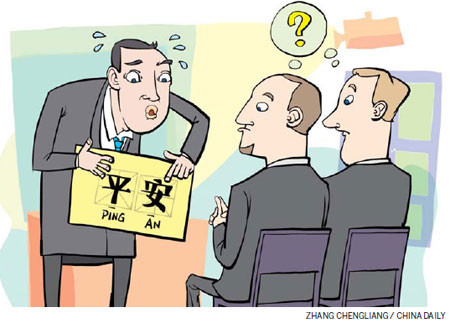
Meaning: after having your Nescafé coffee and smoking your Marlboro cigarette, you drive your BMW to the nearest Carrefour.
There are many funny examples of where multinational companies have used Chinese names, with the result looking like they’re lost in translation. They may seem weird to foreign ears, but for native Chinese, they zing like music. What’s more, they often give a new meaning to the original name. (Cartoon © Zhang Chengliang / China Daily)
This is what we’ll be talking about:
• Why is having a Chinese name important for foreign businesses?
• Chinese brand names unfolded
• Renaming your brand, piece of cake?
•When companies don’t partake in the name changing game
• Does your brand name really influence success?
• Same story for Chinese brands
Why is having a Chinese name important for foreign businesses?
Two major reasons:
- It helps with penetrating the Chinese market. For sure, how were you otherwise planning on conquering the huge Chinese market when its consumers can’t even pronounce, let alone remember, your brand name?
- Names are really important in China and more precisely the meaning it represents. Having a meaningful name will make your brand look much more appealing.
Chinese brand names unfolded
When a foreign company chooses a Chinese brand name, there are several possibilities:
1. Literal translation
Using this approach, the disadvantage is that in most cases the new Chinese name doesn’t sound similar to the original brand’s name. These companies will need to spend marketing time and money on building brand awareness and building the association between their original brand name and the Chinese character trade mark.
Examples:
| Chinese Name | Pronounciation (pinyin) | Meaning | |
|---|---|---|---|
| Apple | 苹果 | Píngguǒ | Píngguǒ: apple |
| Palmolive | 纵览 | Zōnglǎn | Zōng:palm Lǎn: olive |
| Microsoft | 微软 | Wēiruǎn | Wēi: micro Ruǎn: soft |
| Volkswagen | 大众汽车 | Dàzhòng qìchē | Dàzhòng: public, all Qìchē:car |
2. Phonetic translation
A phonetic translation of a company’s brand name is only beneficial when that company already has a reputation in the Chinese market.
Examples:
| Chinese Name | Pronounciation | Meaning | |
|---|---|---|---|
| Kraft | 卡夫 | Kǎfu | Kǎ: card Fu: husband |
| Wal-Mart | 沃尔玛 | Wò'ērmǎ | Wò: fertile Ēr: suffix often used in names to indicate the sound [-l], [-el] Mǎ: mary |
| Dior | 迪奥 | Dí'ào | Dí: enlighten, guide Ào: profound and difficult to understand |
| McDonald’s | 麦当劳 | Màidāngláo | Mài: general term for wheat, barley, oats, etc. Dāng: to serve as, or to be used as Láo: to work |



3. Combination of literal and phonetic translation
Most companies opt for a combination of both. Having a phonetic translation so your brand name sounds (more or less) the same in Chinese with preferably well-chosen Chinese characters that have a positive meaning and can also describe the company or product.
Examples are numerous:
| Chinese Name | Pronounciation | Meaning | |
|---|---|---|---|
| Nestlé | 雀巢咖啡 | Quècháo kāfēi | Què: sparrow |
| Marlboro | 万宝路 | Wànbǎolù | Wàn: 10 000 Bǎo: treasure Lù: street, path Meaning: 10 000 Treasure Road |
| BMW | 宝马 | Bǎomǎ | Bǎo: treasure Mǎ: horse Meaning: Treasured Horse |
| Mercedez Benz | 奔驰 | Bēnchí | Bēn: run fast Chí: go quickly Meaning: Dashing Speed |
| Jaguar | 捷豹 | Jiébào | Jié: win, victory Bào: leopard, panther Meaning: Swifting Panther |
| Coca-Cola | 可口可乐 | Kěkǒukělè | Kěkǒu: delicous Kělè: happiness Meaning: Delicious & Happiness |
| Subway | 赛百味 | Sài bǎiwèi | Sài: To surpass, to excel Bǎi: 100 Wèi: flavour Meaning: Filled with One Hundred Flavours |
| Carrefour | 家乐福 | Jiālèfú | Jiā: family Lè: happy Fú: prosperous Meaning: Family Blessing |
| Lexus | 雷克萨斯 | Léikèsàsī | Léi: thunder Kè: to overcome with victory Sà: filler sound that appears in many words like 萨萨 (sàsà ), the sound the leaves make when it's windy. Sī: phonetic element Meaning: All the above results in a wild sounding ride, doesn’t it? |
| Pepsi | 百事可乐 | Bǎishìkělè | Bǎi: 100 Shì: matter, thing Kělè: happiness Meaning: A Hundred Happy Things |
| Lay’s | 乐事 | Lèshì | Lè: happiness Shì: matter, thing Meaning: Happy Event |
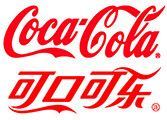
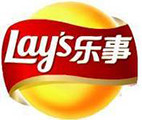
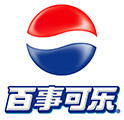
Pay attention to:
- When going for a phonetic translation, companies need to make sure the Chinese name sounds the same as their original brand name
- Chinese brand names must be easy to remember
- Meaning should describe the product or brand in a positive way
Renaming your brand, piece of cake?
As mentioned above, your Chinese brand name should not be taken very lightly. However, foreign companies most likely lack knowledge of Chinese language or mostly don’t have an in-house Chinese language expert.
This results in the growing popularity of consulting companies specialized in renaming foreign brands.
When companies don’t partake in the name changing game
Some companies decided to not have a Chinese brand name when entering the market. By doing this, they want to stress their exclusivity. However, these brands have picked up nicknames along the way given by the general public.
Examples:
| Chinese Name | Pronounciation | Meaning | |
|---|---|---|---|
| Quaker Oatmeal* | 老人牌 | Lǎorén pái | “Old Man Brand”, name based on logo |
| Ralph Lauren | 三脚马 | Sānjiǎo mǎ | “Three Legged Horse”, name based on logo |
*Quaker Oatmeal has in the meantime adopted a Chinese brand name: 桂格Guì Gé, which literally means “Cinamon Standard”.
Does your brand name really influence success?
Hard to define.
However, here are a few examples that might indicate a relation between a brand’s name and its success in a certain market.
- Mercedes Benz and BMW are both big car companies in China. Benz’s Chinese name holds the meaning of ‘dashing speed’, while BMW means ‘treasure horse’. ‘Dashing speed’ holds a more masculine connotation, while ‘treasure’ is a feminine trait. BMW is among the leading sellers to wealthy Chinese women.” (Li & Shoostari, 2003)
Did-you-know: There is also a local variant for BMW: 别摸我 (Bié Mō Wǒ), which literally means ‘Don’t Touch Me’.
- Search engine Bing has found it difficult to break through the Chinese market. Bing sounds similar to the Chinese word for ‘illness’ 病 (bìng). Although it’s official Chinese name is 必应 (bì yìng), which means ‘very certain to respond’, the resemblance of its original brand name with illness is hard to compete against.
- Best Buy, 百思买(bǎisīmǎi) In Chinese this means ‘Think 100 times before you buy’ , not the best name for a retail store, isn’t it? The company has been closed down.
Of course, these are not all scientific facts, but it nevertheless gives us some food for thought. Moreover, it’s hard to believe that Chinese people wouldn’t pay attention to the characters any company chooses to use in its brand name.
Same story for Chinese brands
It works the other way around as well. Nowadays, local Chinese firms must also engage in a name changing game as they want to gain more international awareness.
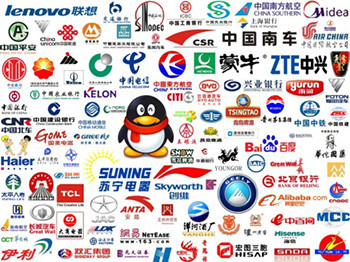 For instance, Jiànlìbǎo, a Chinese domestic soft drink brand, had difficulties breaking through on the international market as foreign consumers had a hard time pronouncing its name.
For instance, Jiànlìbǎo, a Chinese domestic soft drink brand, had difficulties breaking through on the international market as foreign consumers had a hard time pronouncing its name.
Also, a recent study by HD Trade Services shows that a vast majority (94%!) of Americans can’t name even one Chinese brand. This indicates once more that adjusting your brand name to the market is beneficial, if not necessary. (Image © Ads of China)
A small recap
Chinese brand name is not only a game important for foreign companies. When those companies decide to penetrate the Chinese market, they can rely on the expertise of brand naming companies. Only a minority has a single phonetic meaning, whereas most companies opt for meaning in their brand name, mostly stressing the product’s benefits.
Next time someone is talking to you about riding his “swift panther”, don’t frown your eyebrows in huge wonder, they’re most likely talking about their new Jaguar.
by Haike Bruneel
Don't miss out on more articles and news about Hutong School, the Chinese language, life in China and much more.